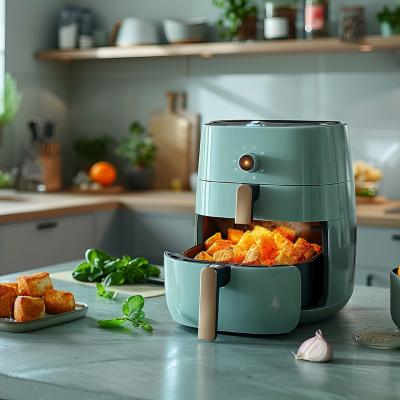
There are many different types of oils that can be used for cooking, and it can be difficult to decide which one is the best option. Two popular cooking oils are peanut oil and canola oil. Both have their separate uses and benefits.
In general, peanut oil is better for frying foods while canola oil is a healthier option for other cooking methods. Peanut oil has a higher smoke point and therefore is less likely to produce harmful compounds when heated to high temperatures.
In this blog post, we will compare peanut oil and canola oil to help you make a decision about which one is right for you. Both of these oils have their pros and cons, so read on to learn more!
Types of Peanut Oil and Canola Oil
Peanut Oil
Peanut oil is extracted from peanuts, which are a type of legume.
There are two types of peanut oils: refined and unrefined.
Unrefined peanut oil has a stronger flavor because it is not as processed, but it can also contain more allergens (such as peanut protein) than its refined counterpart. Refined peanut oil does not have an odor or taste to speak of; therefore some people prefer using it for cooking.
Both types of peanut oil have a high smoke point and are suitable for frying foods at high temperatures.
Canola Oil
Canola oil is extracted from canola seeds, which are a type of rapeseed. Rapeseeds were originally used as an industrial lubricant before they became popularized in cooking and food production.
There are two kinds of canola oil: refined and unrefined.
The refining process removes the flavor from the oil, so it’s more neutral in taste than olive or peanut oils. It also has a high smoke point – around 400 degrees Fahrenheit (204 degrees Celsius) – which makes it ideal for cooking at high temperatures.
Both types of canola oil have a high smoke point and are suitable for frying foods at high temperatures.
Many people prefer to use canola oil in salad dressings, marinades and sauces because it doesn’t have a strong flavor.
LEARN MORE: Peanut Oil Vs Coconut Oil
Taste of Peanut Oil and Canola Oil
When it comes to taste, peanut oil and canola oil are pretty comparable. Peanut oil has a slightly nuttier flavor while canola oil is more neutral. Some people prefer the taste of one over the other, but in general, they both have a fairly mild flavor.
It can be hard to tell the difference between canola oil and peanut oil side-by-side, but if you have a sensitive palate or you’re cooking with other ingredients that are stronger in flavor than either of these oils, it may help to choose one over the other.
If your recipe is delicate and calls for an oil with a very mild flavor, peanut oil is the better option. But if you’re looking for something that will blend in seamlessly with other flavors, canola oil is probably your best bet.
At the end of the day, it all comes down to personal preference – so why not try out both and see which one you like better!
LEARN MORE: Roasted Peanut Oil Vs Peanut Oil
Uses of Peanut Oil and Canola Oil
- Peanut oil is often used in Asian cuisine, especially for stir frying. It has a strong flavor that can be overpowering if too much of it is used.
- Peanut oil also works well as an ingredient in salad dressings because its mild taste pairs well with other flavors.
- Peanut oil can be used in a variety of ways, including frying foods like chicken wings or french fries as well as stir-frying veggies with some soy sauce. It also makes an excellent substitute for butter when baking cookies and other pastries! The high smoke point means that peanut oil won’t burn quickly.
- Canola oil is commonly used in baking recipes, especially when a neutral taste is desired. It can also be substituted for butter or margarine in baked goods like cookies and cakes.
- Canola oil has a lower smoke point (around 320 degrees Fahrenheit) than peanut oil, so it’s not the best choice for frying foods.
LEARN MORE: Peanut Oil Vs Sesame Oil
Nutritional Value and Health Benefits of Peanut Oil and Canola Oil
- Both peanut oil and canola oil are high in monounsaturated fats, which have been shown to improve heart health.
- Peanut oil is also a good source of vitamin E, while canola oil is a good source of omega- fatty acids.
- Both oils are low in saturated fats, which can help reduce the risk of heart disease.
- Peanut oil contains more saturated fats than canola oil.
- Canola oil is also a good source of vitamin K, while peanut oil does not contain any significant amounts of this nutrient.
Overall, both oils are healthy choices for cooking and have many nutritional benefits.
LEARN MORE: Peanut Oil Vs Olive Oil
Health Risks of Using Peanut Oil and Canola Oil
The downside of having peanut oil and canola oil are:
- Peanut oil is a legume and can cause an allergic reaction in people with peanut allergies, this also includes tree nuts like almonds or walnuts. Canola oil comes from rapeseed, which contains high levels of erucic acid that could be toxic if consumed in large amounts.
- Canola oil has a lower risk of causing an allergic reaction than peanut oil because it comes from a different plant.
- Both oils are high in omega fatty acids and polyunsaturated fats which can cause inflammation when heated at high temperatures.
LEARN MORE: Peanut Oil Vs Corn Oil
Which Oil Is Better?
Which one is better really depends on what you’re using it for. Peanut oil is a good choice for frying because it has a high smoke point and gives food a nice flavor. Canola oil is a better option for baking or salad dressings since it has a lower smoke point and doesn’t have as strong of a taste.
In summary, peanut oil is best used for frying, and canola oil is better suited to baking or salad dressings or low-heat dishes. Now, if you need to do high heat cooking such as deep-frying or stir fry, peanut oil is a better option.
On the other hand, if you are preparing a low heat dish such as salad, dressing, etc. then opt for canola oil.
LEARN MORE: Rice Bran Oil Vs Peanut Oil
Conclusion
If you’re looking for an oil with a neutral taste that can be used in a variety of recipes, then canola oil is the best option.
If you’re looking for an oil with a strong flavor that is best suited for frying, then peanut oil is the way to go. Both oils have many health benefits and are a good source of nutrients.
In the end, it’s up to you! Whichever oil you choose, be sure to use it in a way that best suits its strengths – your taste buds will thank you for it!



